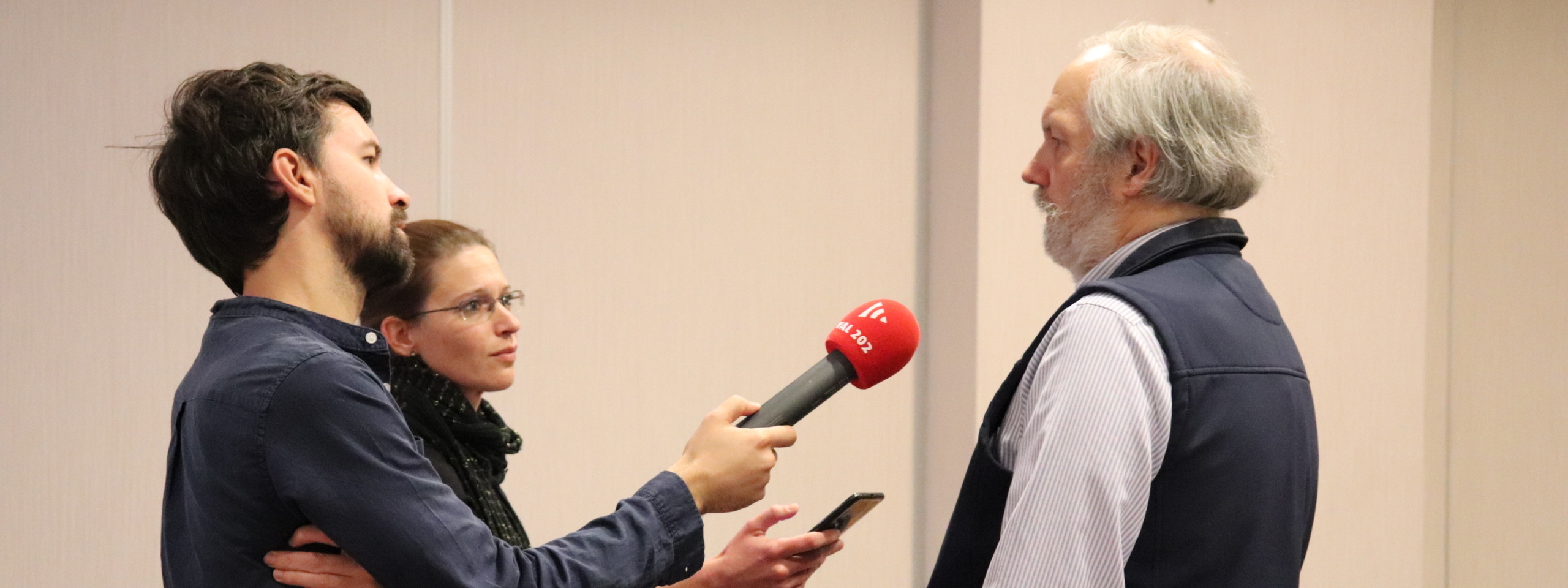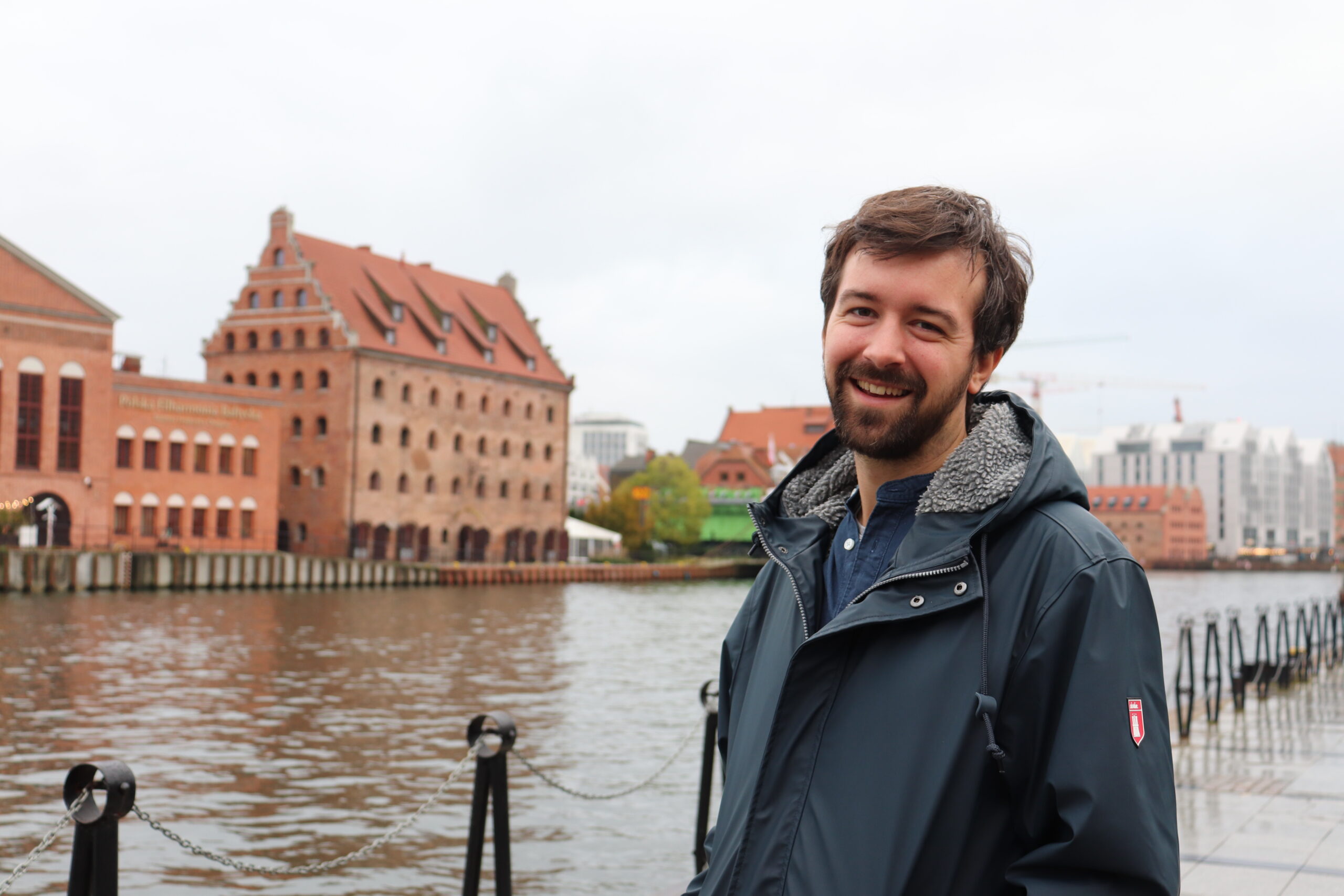EUKI Interview with slovenian Journalist Gašper Andrinek
by Tanja Maximow, GIZ/ EUKI
Gašper Andrinek is a Slovenian journalist from Ljubljana. He works for the radio station Slovenia Val202, freelances for Deutsche Welle, is a board member of the Slovene Association of Journalists and Programme Director for the journalism festival Forward. Gašper is a fellow of the European Climate Initiative (EUKI) project Central Eastern European Climate and Energy Policy Scholarship for Journalists implemented by the International Journalist Programme (IJP). The interview took place on the side-lines of the Energy and Climate Media Dialogue in Poland.

You are involved in many journalism projects – to what extent are they related to climate change?
My work is very much climate related. For the radio station we are producing a science programme called Frekvenca X. This broadcast, which happens to be very popular in Slovenia, explores many aspects of climate change. Prior to COP26, the authors of the show asked three scientists about their expectations. After the UN Climate Change Conference, these scientists then reported back to us on whether or not their expectations had been met.

We are currently developing a concept for a podcast about young self-sufficiency advocates who come together in rural areas, renovate and improve the energy-efficiency of old houses, derive their energy from renewable sources and grow their own food, e.g. by planting their own gardens or keeping bees.
Furthermore, we are currently organising the journalism festival Forward where there will definitely be a presentation on climate journalism. We are convinced that the right communication about climate change is currently topic number 1.
We are also considering a topic I find very interesting: Can there be such a thing as objective reporting on climate change? Is it possible to deliberate it critically from a journalistic standpoint? Is there are line between activism and journalism?
Is it possible for journalists to be objective when reporting on climate change?
That’s not an easy question. As a journalist you are obliged to examine every topic critically. And in the case of climate change, that’s quite difficult in some ways, isn’t it? After all, the facts are clear, and you don’t want people to deny them. I think that a climate journalist can be objective, but it is important to always place things in the right context. There’s nothing easier than taking something out of context. We can report on Poland closing down its coal plants and be happy about it. That’s great news for climate protection! But on the other hand, thousands of people will be losing their jobs in the near future. As journalists we have to take this into account in our reporting.
How did you find out about the IJP?
Katja Lihtenvalner, an alumna of the IJP climate scholarship, told me about it and I’m really glad she did. Owing to the COVID-19 pandemic, I wasn’t able to do my internship abroad last year. For this reason, I’ll be starting the scholarship in March 2022. I hope to work in the Alfred Wegener Institute for some of the time and to dedicate the rest of my time to individual research. I’m interested in Germany’s pathway to decarbonisation, which is why I’d like to travel to Germany’s coal mining regions. I’m also planning to do some research into climate refugees. The next big wave of refugees will be driven by climate change and Germany will play a decisive role.
What does being an IPJ fellow mean to you?
Being part of IJP is a unique opportunity for me to forge contacts with a lot of colleagues throughout Europe and around the world and to share ideas on journalistic approaches, e.g. on climate communications. What is the best way to report on climate change? What is the best way of approaching people so they don’t think you want to convince them of something, but are actually presenting scientific facts? Climate change, energy, energy transition, carbon neutrality and carbon emissions are complex topics, so we really need to share our ideas and experiences. And IJP is great for that.
Thank you for the interview.
